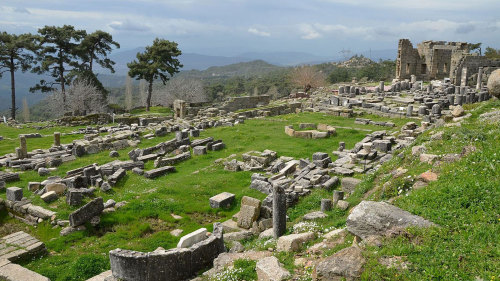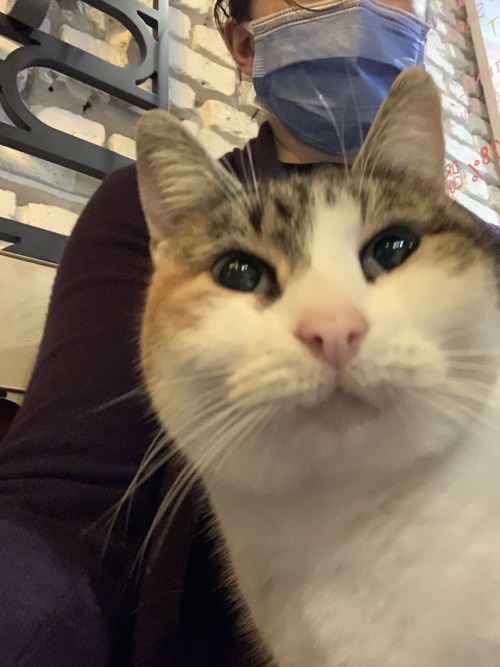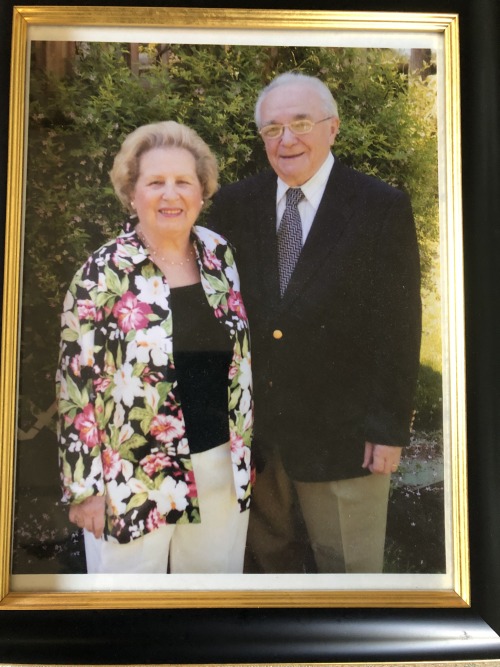
When first I came to Istanbul, I had no idea that nearly a decade later I would be living here and finishing my PhD dissertation in Anatolian archaeology. I was an undergraduate completing my majors in Biology and Classics, but I had become interested in the material culture of the ancient world. I was fortunate to have the experience to work at the ancient site of Labraunda (near modern Milas) with Prof. Felipe Rojas of Brown University.
Our small American team met up in Istanbul before traveling to Labraunda, and I fell in love with the city: both its history and modern culture. Working at Labraunda was an intense experience (it was my first time both working at an archaeological site and camping!), but I fell in love with archaeology, too. I enjoyed working collaboratively on a team to conduct new research and learning from other archaeologists of many nationalities who worked at Labraunda.
Fast forward to today, I am writing this blog post just a few days after I submitted my dissertation to my committee at University of Michigan. My dissertation topic of Hellenistic urbanization was inspired by my fieldwork at the Hellenistic city of Notion (near Ephesus and modern Selçuk) with my PhD advisor and director of the project Prof. Christopher Ratté. I focus on a series of case studies of urban development in western Anatolia and consider the roles of communities (particularly the local elite, male population). I explore local elite agency in the urbanization process by examining the archaeological data of settlement patterns, civic building, funerary monuments, sanctuary dedications, and resource extraction, as well as the textual record. When I am taking a break from my research, though, I enjoy revisiting the places of Istanbul I saw so many years ago, such as the many side streets of Istiklal and the seaside of Kadıköy. I also enjoy finding new places and cuddling with the friendly cats in local coffee shops.

Making friends at a local coffee shop.
I deferred my fellowship at ANAMED from 2020–2021, so I am very grateful to have the opportunity to live in Istanbul and become part of the amazing ANAMED community. Because the last time I was in Istanbul was before the pandemic, however, as I finish my PhD it is hard for me not to reflect upon the hardships between now and then. I especially think of my maternal grandparents, who both passed away during the pandemic. They were always eager to hear about my work in Turkey and my progress in my PhD. They were Hungarian, and they were excited to talk about similarities in both the Hungarian and Turkish languages; for example, their last name was Oroszlan, which means lion like the Turkish “Aslan.” My grandma proudly hung a postcard of the Blue Mosque that I sent her from one of my first visits to Istanbul on her fridge. Finishing a PhD is of course a time of great excitement and celebration, but I feel a tinge of sadness that my grandparents could not see me graduate. Walking around Istanbul where I visited before the pandemic reminds me of this sadness, but also how resilient I have been to have finished my dissertation despite all the negative things that have happened in the past two years. The pandemic has been, and continues to be, traumatic for everyone, and I think it is important to recognize the struggles we have been through and what we have accomplished in spite of great setbacks.
As I prepare for my defense and see my archaeological education come full circle, I want to acknowledge this loss alongside accomplishment. I could have never imagined what my first trip to Turkey had in store for me. I am very lucky to have such supportive mentors and family in my academic journey so far, and I look forward to dedicating my final dissertation to my grandparents.

My grandparents Judith and Stephen Oroszlan.

